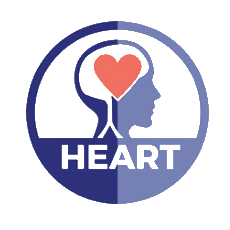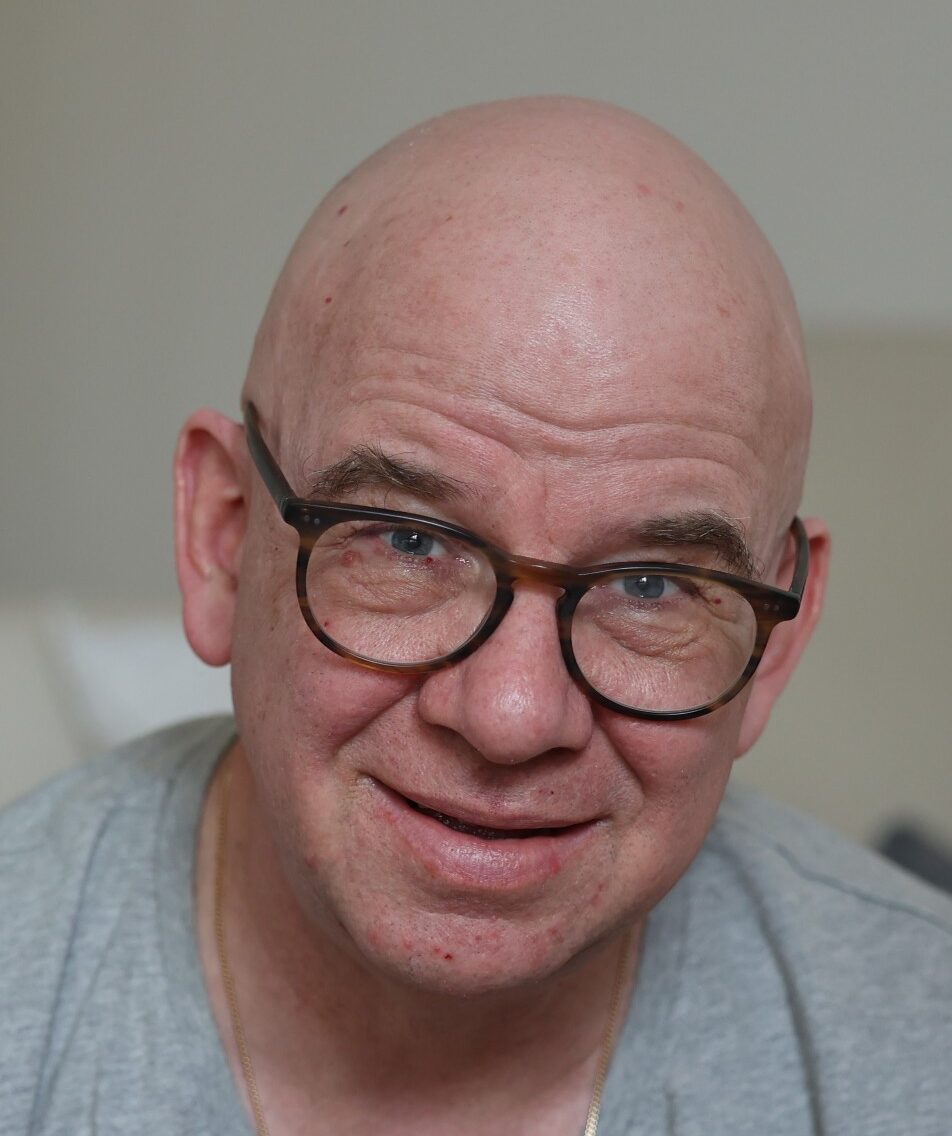Lehrplan des Human Empowerment And Resiliency Training
Das OI HEARTraining® ist ein 3-jähriges Ausbildungsprogramm mit einem einzigartigen Format: Sechs 6-tägige Module und ein dazwischenliegendes Selbststudium unterstützen die Entwicklung fachlicher Fertigkeiten und das persönliche Wachstum. Jedes Jahr absolvieren die Studierenden zwei, 6-tägige Trainingseinheiten in Arlesheim und nehmen zusätzlich an einem fortlaufenden Heimstudium im virtuellen OI-Klassenzimmer und an Mentor Gruppentreffen teil .
Mit Unterstützung der Trainer und der OI-Mentoren vertiefen und festigen die Teilnehmenden schrittweise ihre Beobachtungsfähigkeit und ihre Fertigkeiten bezüglich angemessener Interventionen.
Videoaufnahmen der Theorie und Praxis jedes Moduls und kommentierte/analysierte Demositzungen werden den Teilnehmenden im virtuellen OI-Klassenzimmer zugänglich gemacht.
Das HEARTraining ist kein linearer Prozess, sondern eine systemisch vernetzte Vorgehensweise. Die Lerninhalte und Interventionen orientieren sich vor allem an den Bedürfnissen der Gruppe und entspringen daher stark aus dem Moment. Wir behalten dabei einen gleichwertigen Fokus auf der Entwicklung von Fachkenntnissen und auf persönlichem Wachstum.
Dies bedeutet, dass die unten aufgeführten Inhalte nicht unbedingt in chronologischer Folge vermittelt werden. Vielmehr wird der Prozess in fraktalen Mustern erlebt und erarbeitet. Das heisst im Kleinen spiegelt sich schon das Ganze und im Grossen zeigen sich mit kleinen Variationen (Redundanz) immer wieder die Details.
Genau das ist das Neuartige in der Vorgehensweise von Organic Intelligence und vor allem so kann auch unser eigenes System auf einer tiefgreifenden, neuro-biologischen Ebene angesprochen werden, in einer Art, die mehr Resilienz und inneres Wachstum ermöglicht.
Sie lernen, innere Prozesse wertungsfrei zu betrachten und werden vom Gegenüber auch so betrachtet. Dadurch entwickelt sich auf natürliche Weise das Mitgefühl gegenüber uns selbst und anderen. Einfaches Geniessen wird kultiviert, Achtsamkeit wird vertieft und Hoffnung entsteht: Human Empowerment und Resilienz.
Theoretisch und praktisch erhalten Sie mehr Einblick und Verständnis in die Struktur komplexer Systeme: biologische, familiäre, soziale, globale und andere. Sie lernen die von Organic Intelligence entwickelten „Landkarten“ für diese Systeme zu lesen und zu verstehen. Indem sie diese Kenntnisse anwenden, entstehen angemessene Interventionen mit fein abgestimmtem Timing. Die Förderung der Selbstregulation unseres Nervensystems steht dabei im Vordergrund und Sie arbeiten dabei implizit mit traumatischen Erfahrungen oder dysregulierten Zuständen.
Schrittweise vertiefen und verfeinern Sie Ihr theoretisches und praktische Verständnis von komplexen Systemen. Sie beginnen die Kunst der „Free Association Conversation“ zu erlernen. Wenn die Grundbedingungen stimmen, entsteht ein natürlicher Übergang von impliziter zur expliziter Verarbeitung. Sie lernen, mit häufig auftretenden vegetativen Dysregulationszuständen zu arbeiten und die Inhalte (verschiedenste traumatische Ereignisse, prägende Erinnerungen), die auftauchen, kreativ und auf förderliche Art zu integrieren.
Später liegt die Betonung auf der Praxis mit Supervision und der Entwicklung fortgeschrittener Fähigkeiten, wie zum Beispiel vertieftes Zuhören und Berührung. Sie erlernen, in Beziehung zum Gegenüber wirklich präsent zu sein. Sie werden verstehen, wie physische Syndrome wie Migräne, Fibromyalgie, Empfindlichkeiten gegenüber Umweltreizen, Sucht usw. auch Ausdruck eines sich im Ungleichgewicht befindlichen autonomen Nervensystems sind, und wie Sie die zuvor entwickelten Fertigkeiten dazu nutzen können, diese Syndrome anzusprechen.
Sie werden während dieser drei Jahre kontinuierlich darin gefördert, zu Ihren eigenen Werten und zu Ihrer Berufung zu finden. Sie beginnen sich immer mehr daran zu orientieren, was in Ihrem Leben wirklich wichtig ist. So wird sich Ihre eigene Organische Intelligenz spontan ausdrücken. Das Vergnügen ist unverkennbar, die Hoffnung ist spürbar, und die Wirkung ist tiefgreifend.
Wenn das erste Jahr dem Erlernen von Tonleitern und dem Spielen einfacher Melodien entspricht, dann zeigt das zweite, wie man komplexe Kompositionen erlernt und im dritten Jahr heisst es dann: Improvisieren!
Die nachfolgende Jahresübersicht soll einen Anhaltspunkt darstellen, kann aber in der Praxis abweichen:
(Die englischen Texte werden Stück für Stück übersetzt)
HEART Curriculum
The OI HEARTraining® is a 3-year training program with a unique format: six Retreats and At-Home units support professional skill development and personal evolution. Each year, students will attend two, 6-day Retreats and participate in ongoing At-Home study through the OI Virtual Classroom and Mentor Group Meetings.
With the help of Training Facilitators, including OI Mentors, step-by-step practices consolidate students’ observation & intervention skills. Recordings of the Retreats are made available in the membership area of each student’s OI Virtual Classroom along with the live demonstration sessions, which include analysis.
Year 1
With an equal focus on the development of skills and development of the person, we see beyond trauma to the re-emergence of natural compassion for oneself and others: human empowerment and resiliency. Through practice and formal teaching, students begin to see into the structure of complex systems: biological, family, social, global, and other systems. Students learn to “read” and understand the maps for these systems, practicing implicit trauma resolution and using these maps to make attuned, appropriately timed interventions. Simple human pleasure is cultivated, mindfulness emerges, and hope results.
Year 2
Students continue their exploration of complex systems and focus on progressive skill development in trauma resolution by working with the most common traumatic events. During this year, Students begin to recognize the natural transition from implicit to explicit processing and develop the art of “the free association conversation.” This year also emphasizes students finding their own latent agency and meaning. We orient around what really matters. If Year 1 is like learning musical scales and playing simple melodies, Year 2 shows how to play complex compositions (Year 3: improvisation!)
Year 3
The emphasis is on supervised practice and advanced skill development, to include deep listening and touch and embodying what it means to be of service. We will examine how physical syndromes such as migraines, fibromyalgia, environmental sensitivity, addiction, etc., are part of the compromised autonomic organization and use newly developed skills to address these syndromes. Students learn to spontaneously express Organic Intelligence®. The pleasure is unmistakable, the hope is palpable, and the effect is powerful.
The first year of the HEARTraining teaches how to see into the structure of complex systems: biological, family, social, global, and other systems.
Students learn to “read” and understand the maps for these systems and how to use these maps to make attuned, appropriately timed interventions.
Interventions arising from this uniquely OI-attuned relationship naturally catalyze reorganization of the client’s nervous system. Additionally, students are supported in cultivating mindfulness and compassion, which are central to both the professional and personal work of Organic Intelligence!
Year 1 Topics
Shifting Paradigms
- From Negative to Positive Reinforcement
- OI: The Addiction Model
- Natural Plateaus & The Three Errors of Conditioning: Correcting the Deviations from our Natural Learning State
- The Three Phases: Chaos, Complexity, Coherence
- The Both-And Model: Red and Blue and the Binary Nervous System
Working with Trauma
- Initial Conditions and The Implicit Exposure Model: Beyond Trauma, Safer than Safe
- Making a Resiliency Assessment: Observable Criteria
- Working with Fight-Flight-Freeze
- Implicit Exposure Protocol
- State-Specific Memory
- The Dissociative Continuum — Psychology Meets The Physiology of Freeze
Complex Systems
- Foundations of Complex Systems
- Nervous System Mapping
- Deep Ecology & The Science of Complexity
Bio-Mapping
- The Fractal Nature of Body & Mind and why this is important
- Attuning Interventions to Bio-Phase
The Roots of Compassion: Stephen Porges’ Polyvagal Theory
In the second year we build from the foundation of our stabilization-based trauma resolution protocol and understand the why’s and how’s for working beyond trauma resolution to empowerment and resiliency. Extreme life events such as accidents, abuse, early life mis-attunement, surgery, disasters, assault, etc., show key dimensions of the physiological responses for trauma, and key dimensions of the natural attempt of the nervous system to reorganize. By working organically through the implicit exposure protocol, trauma becomes a portal through which we rescue the system from its spiral of disintegration and facilitate the return to exploration and growth.
Instead of trying to resolve trauma symptoms through the physiology, we learn how the physiology will use the trauma to gain increased agency and capacity. Symptoms point us to the natural entry point of in-the-moment work: the “Complex du Jour,” which in turn often points to a fractal map of unfolding — the important concept of the naturally occurring Holographic Blue resource. Students learn to re-envision the therapeutic landscape.
Year 2 Topics include
Details for Working with the Most Common Traumas
- Context is Everything
- Priming & The Language of Facilitation
- Orientation and The Vestibular System: Gravity, Grounding and Growth
- Recognizing Thresholds & JNDs (Just Noticeable Differences)
- Closure & Completion: Wundt’s Gestalt Laboratory
- The Free Association Conversation
- Rescuing Projection from Pathology: The Value of Outsight
Beyond Trauma
- From Trauma Resolution to Empowerment, Agency, and Emotional Development
- Building on Strengths vs Reducing Symptom Behaviors
- How the Nervous System Re-Organizes and the Return of Exploration
- What Really Matters — Existential Roots of Felt Destiny
- Meaning, Purpose and Motivation in Treatment
- Empathy and the Development of Emotional Intelligence
- Historical Trauma Repetition and The Social Milieu: Privilege & Oppression
Applying Systems Theory in the Real World
Trauma-Sensitive Systems: Therapeutic Relationships, Organizations, Disaster Relief, Aid Projects
In Year 3, we increase the already intensive focus on supervised practice and hone newly acquired observational and other skills for working with the most complex disorganization, including deep listening and touch, and embody the pleasure of what it means to be of service. Clinically, we examine how physical syndromes such as migraine, fibromyalgia, environmental sensitivity, addiction, etc., show the compromised autonomic organization. Special care is needed because these most disorganized systems may appear to be quite functional according to societal standards. Fundamental system disorganization may appear as the successful workaholic, the functional addict, or the successful executive, for instance. Here, the steady work of the shaping paradigm within a positive reinforcement framework is the most challenged and challenging.
Success occurs through working with core regulatory systems previously believed to be out of reach to ‘conscious’ intervention. While the client has the needed resources, they are typically unconscious for the client and overlooked by the therapist. Having learned how to make a deep joining at the level of the nervous system, OI HEART students understand that complex systems do not organize through interventionist strategies or self-control. Rather, seeing subtle bio-states, instinctive responding alone can talk to the brain stem. Simply put — we each need another person to accurately reflect what is intrinsically available for support. This accurate reflection is what we have cultivated throughout the OI training. With the right support, all complex systems — each of us — can end the cycles of disintegration, and become self-organizing; and even become organizing influences for systems we encounter. Systems such as clients, colleagues, family, friends, and the larger culture. In fact, a lifestyle of compassion begins to emerge and OI students develop the ability to create and increase “islands of coherence.”
In this third year, the refinement of wise support takes us to a new level of sophistication. The result is deeper compassion for ourselves and others, self-acceptance and deepened intuition. As our organism blossoms out of freeze it comes to move naturally and spontaneously, expressing Organic Intelligence. The pleasure is unmistakable, the hope is palpable, and the effect is powerful.
Working with the Three Phases
- Phase I: Disorganization and Chaos:
- Why & How Systems Get This Disorganized
- Assessment of Autonomic Disorganization: Syndromes, Observable Criteria
- Phase II: Complexity
- Stabilization and Good Social Work
- Facilitating the Transition to Phase III
Organization and Coherence
- System Coherence and Self Organizing Systems
- Building Islands of Coherence
- Reinforcing and Catalyzing Biological Synchrony
- Tracking Organismic Coherence with Eyes and Hands and Hearts
- Gestalt Seeing
- Deep Listening & Felt Sense
Nervous System: Sympathetic and Parasympathetic Systems
- The Sympathetic Death Spiral
- The Dorsal-Sympathetic Breakdown
- Glia: Not Just Packing Peanuts
- A Cartography of Body Systems and Structures
The Non-doing Reinforcement Approach
Pathologizing as Politicizing
Touch
- Normalizing Touch for Mammals: We Don’t Thrive with Wire Monkey Mothers
- The Ethics of Touch
We’re Made for This: Social Attunement
- The Singing and Dancing Species
Building Your Practice
- Technology & Treatment
- Marketing: Getting Your Skills in The World


